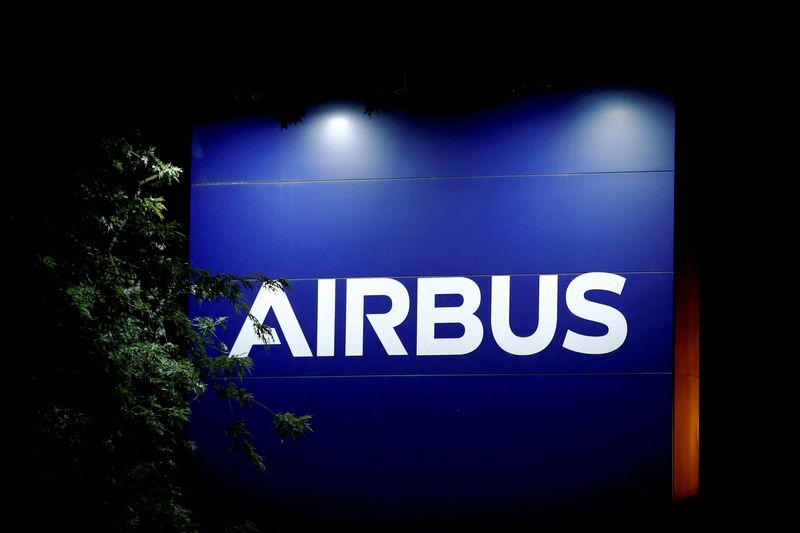By Albee Zhang, Tim Hepher and Eduardo Baptista
BEIJING/PARIS (Reuters) -China on Friday formally announced existing deals for Airbus jets worth $17 billion, in what experts described as an effort to showcase a visit by German Chancellor Olaf Scholz that caught the European planemaker and China-watchers off guard.
China's state buying agency CASC said it had signed a bulk agreement for 140 Airbus aircraft including 132 A320-family jets and eight A350 wide-body aircraft during Scholz's one-day visit.
However, the timing triggered speculation as an Airbus spokesperson said it covered deals already on its books including part of a 292-jet deal in July, and an industry source familiar with the matter said the A350 deal went back to 2019.
"China's modus operandi is to announce business deals commensurate with the importance of the guest," said Noah Barkin, managing editor with research firm Rhodium Group's China practice and an expert in German-Chinese relations.
"Germany was not keen to make this about deals. So the Chinese side appears to have reheated an old deal and announced it on their own."
CASC did not immediately respond to a request for comment.
The announcement comes as Beijing is widely seen as keen to show concrete achievements from the visit, which has stirred concerns in Germany that Berlin will prioritise economic ties with Beijing over security and strategic matters.
China is Germany's biggest trading partner and Scholz decided to take a large business delegation with him to the dismay of China hawks in the West.
In the face of growing criticism, a German official said ahead of the visit no deals would be signed during it.
Scholz told journalists in Beijing late on Friday he had campaigned for a level playing field for European and Chinese companies during his trip, but did not mention an Airbus deal.
'DIPLOMATIC SIGNALS'
Experts said the discrepancy between the narrative from Beijing and the reaction in Europe highlighted the importance of the Scholz visit in the eyes of the Chinese leadership.
The German Chancellor's in-person meeting with Xi marked the end of a three-year period where Xi did not interact face-to-face with any leader of a G7 nation.
The aircraft announcement also marked an apparent signal to the United States where Boeing (NYSE:BA) remains largely frozen out of the Chinese market after several years of trade tensions.
China's "Big Three" state airlines in July pledged to buy a total of 292 Airbus jets, making it the biggest order at the time by Chinese carriers for several years and a breakthrough for Europe.
Airbus officially booked the deal in August.
Boeing acknowledged on Wednesday it may have to do without the world's largest import market as it strives to raise output and reach delivery targets in the wake of a safety crisis.
"China has long used jet deals to send diplomatic signals, rewards friendships and punish critics," said a veteran Western watcher of China's aviation industry, asking not to be named.
Friday's announcement covered 132 out of the 292 single-aisle jets purchased from Airbus earlier this year.
Industry sources said that amounted to a carrot for remaining orders to receive the same fanfare during any future trip by French President Emmanuel Macron. Airbus is part-owned by France and Germany and a symbol of European economic ties.

A visit by Macron to Beijing around the time of the G20 in Bali in November has been under consideration, sources have told Reuters, but no official plan has been announced yet.
French and German government sources told Reuters Macron had suggested to Scholz they go to Beijing together to send a signal of EU unity to Xi and counter what they see as Chinese attempts to play one country against another, but Scholz declined.